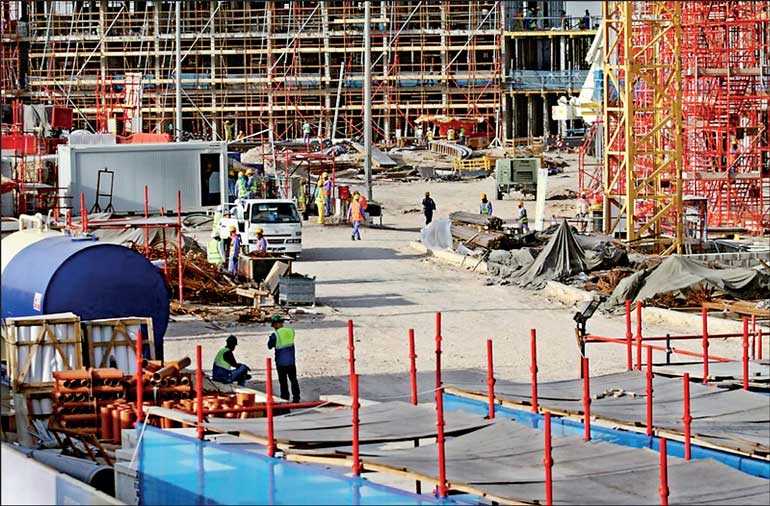Wednesday Feb 18, 2026
Wednesday Feb 18, 2026
Friday, 18 October 2019 00:00 - - {{hitsCtrl.values.hits}}

BEIRUT (Reuters): Qatar’s Government said yesterday it adopted a new minimum wage law and will scrap mandatory exit visas for all workers, part of a broad labour reform program ahead of its hosting of the 2022 World Cup.
The Gulf state, which relies on about 2 million migrant workers for the bulk of its labour force, is also planning to ease curbs on changing employers, Qatar’s administrative development, labour and social affairs ministry said.
Qatar, along with other wealthy Gulf Arab states, has come under fire for what rights groups describe as poor labour conditions. Doha is keen to show it is tackling allegations of worker exploitation as it prepares to host the 2022 soccer World Cup, which it hopes will boost its economy and development.
The statement said the cabinet had adopted new legislation related to the draft law on a minimum wage, though it did not disclose what level the wage could be.
It added it passed another draft law which will lead to the scrapping of exit permits for all workers, adding work was also underway to enable employees to change employers more easily.Qatar last year eliminated exit visas for some foreign migrant workers, but rights groups considered the reform incomplete as it did not apply to domestic workers and allowed companies to keep the visa requirement for up to 5% of staff.
The International Labour Organization described the measures as “a momentous step forward in upholding the rights of migrant workers” and said they were aimed at ending the ‘kafala’ (sponsorship system).
This system is common in Gulf states where large portions of the population is foreign. In Qatar it requires workers to obtain their employers’ consent before changing jobs, which advocate groups say leaves them open to abuse.
“These steps will greatly support the rights of migrant workers, while contributing to a more efficient and productive economy,” the ILO said in a statement late on Wednesday.
It said these new reforms were expected to come into force by January 2020.
Many of the workers toiling on Qatar’s building sites, sweeping its streets and cleaning private homes come from Asian countries like Nepal, India and the Philippines.
Doha has responded to criticism by rights groups by enacting a broad reform program to guard worker rights and improve its image abroad.